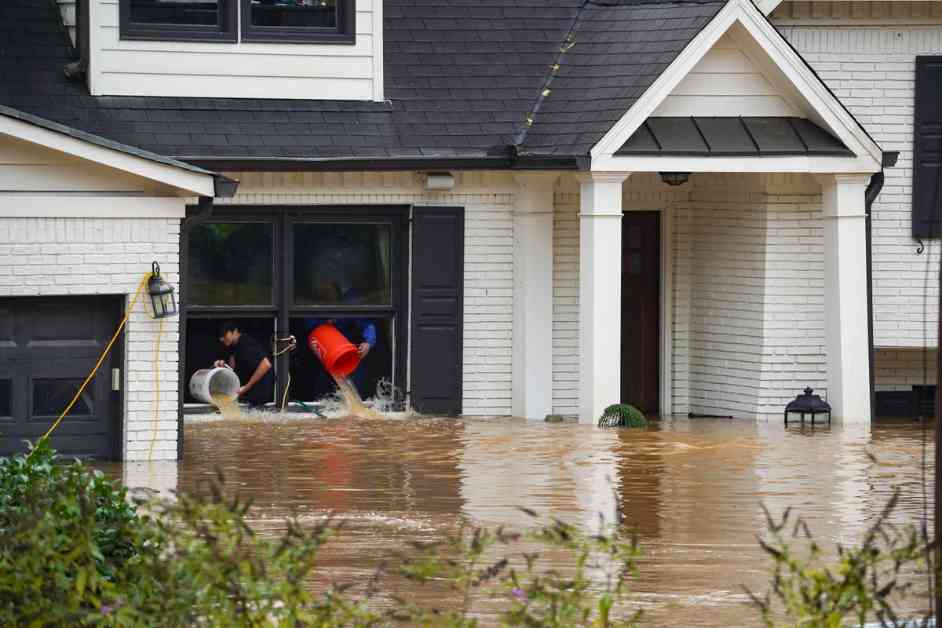After Hurricane Helene wreaked havoc across parts of the Southeast, a significant challenge has emerged for survivors looking to rebuild their homes – the lack of flood insurance. In areas flooded by the hurricane, such as counties in Georgia, North Carolina, and South Carolina, less than 1 percent of households have flood insurance through the federal program that sells the majority of flood policies.
The aftermath of Hurricane Helene has shed light on the existing gaps in U.S. flood insurance coverage and the dire consequences faced by those affected by floods. With climate change exacerbating flood risks from coastal storm surges and overflowing rivers, the need for adequate flood insurance has become more pressing than ever.
Flood insurance is distinct from homeowners’ insurance and is often not included in standard policies, leaving many homeowners vulnerable to flood damage. The Federal Emergency Management Agency’s National Flood Insurance Program covers millions of homes and businesses, but a large number of people living in inland areas choose not to purchase coverage due to various reasons.
The lack of flood insurance coverage is particularly evident in states affected by Hurricane Helene, where only a small percentage of households in disaster areas have FEMA flood insurance. In North Carolina, South Carolina, and Georgia, the coverage rates remain alarmingly low, leaving many households without financial protection in the event of floods.
The implications of the low coverage rates are significant, as they can impede the recovery process, deplete savings, and even force some homeowners to abandon their properties. The most vulnerable communities, such as low-income households, are likely to face the greatest challenges in rebuilding without adequate insurance or financial resources.
While FEMA provides emergency aid to uninsured residents after a disaster, the assistance offered is often limited and may not be sufficient to cover the costs of rebuilding. Additionally, the Department of Housing and Urban Development and the Small Business Administration offer aid in the form of loans, but the eligibility criteria and timeline for receiving assistance can pose additional challenges for homeowners.
Research has shown that uninsured losses following natural disasters can increase the risk of mortgage default and home abandonment, underscoring the importance of flood insurance in protecting households from financial hardship. As climate change continues to elevate flood risks nationwide, the need for comprehensive planning and increased insurance coverage becomes more critical.
In the face of these challenges, it is essential for policymakers, communities, and individuals to prioritize flood insurance as a key component of disaster preparedness and recovery efforts. By addressing the gaps in insurance coverage and promoting awareness of the importance of flood insurance, the resilience of communities in the face of natural disasters can be greatly enhanced.




